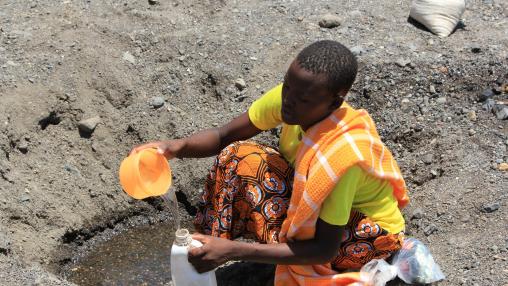
Food and Nutrition Crises Burgeon in Face of Conflict, Funding Cuts: GRFC Mid-Year Update Released
Hunger and food crisis have reached catastrophic levels in multiple places around the world, according to the Global Report on Food Crises Mid-Year Update. Famine has been confirmed in the Gaza Strip and the Sudan, with parts of South Sudan at risk of famine and Yemen, Haiti, and Mali experiencing catastrophic levels of hunger.
In all, 1.4 million people faced IPC Level 5 (Catastrophe) food insecurity and hunger as of August 2025.
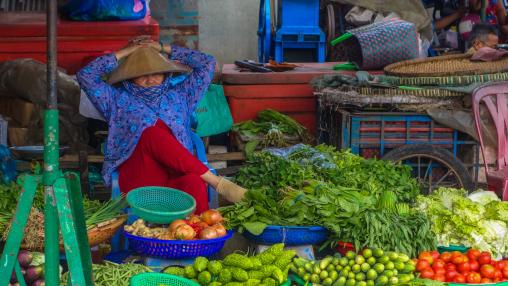
New Cost of Healthy Diets Tool provides powerful look at nutrition gaps—and how to solve them
In recent years, it has become increasingly recognized that true food and nutrition security depend not just on consumption of an adequate caloric quantity of food but also on consumption of the right types of food. A healthy diet—which the WHO and FAO define as one characterized by adequate, balanced, moderate, and diverse consumption of safe foods and beverages—is essential in supporting long-term physical and cognitive health, development, and well-being and in preventing diseases and damaging nutrient imbalances.
Improving Diets and Nutrition through Food Systems:What Will it Take? A Dialogue on IFPRI’s 2024 Global Food Policy Report
IFPRI’s 2024 Global Food Policy flagship publication arrives at a pivotal moment, as the importance of addressing food systems for better nutrition continues to gain global recognition. With United Nations Framework Convention on Climate Change (UNFCCC) 29th Conference of the Parties taking place in November, the SUN Global Gathering on the horizon and the Nutrition for Growth Summit 2025, this report offers valuable evidence and insights that can help guide policy and investment decisions for improving nutrition at the national, regional and global levels.
Debt Distress and the Right to Food in Africa
More than half of low-income countries are at risk of debt distress or have already defaulted. The debt crisis, while exacerbated by recent crises, has been looming for several years. According to the United Nations, 3.3 billion people now live in countries that spend more on interest repayments than on education or health, and in sub-Saharan Africa, governments are spending 53 percent of revenue on debt servicing.
Improving Food Systems for Healthy Diets and Nutrition in Nigeria: Policies and Actions
Livestreaming will be available on this page on the day of the event.
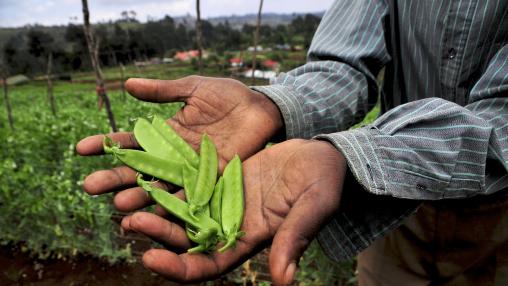
Leveraging the Potential of Ghana's Food System
Malnutrition—including undernutrition, micronutrient deficiencies, overweight, obesity, and diet-related non-communicable diseases (NCDs)—poses a staggering challenge to health, food security, and economic growth outcomes around the world. In Ghana, an estimated 256.1 million people experienced hunger and 240 million were undernourished in 2018. At the same time, rates of obesity and diet-related NCDs in the country have risen significantly—from just 10 percent of Ghanaian adults in 1993 to 40 percent in 2015.
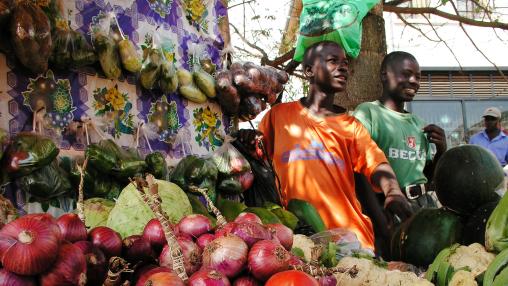
Political Commitment to Improved Nutrition Grows in Africa But Significant Challenges Remain: 2024 GFPR Released
The transformation of African food systems to support healthy, sustainable diets presents a significant challenge, according to the 2024 Global Food Policy Report released in May. Cereal production remains the key driver of the region’s domestic food systems, while more nutrient-dense foods like fruits, vegetables, pulses, meat, and dairy remain unaffordable for much of the region’s population. Africa also faces a double burden of malnutrition, with both undernutrition and overnutrition (overweight/obesity) rates increasing.
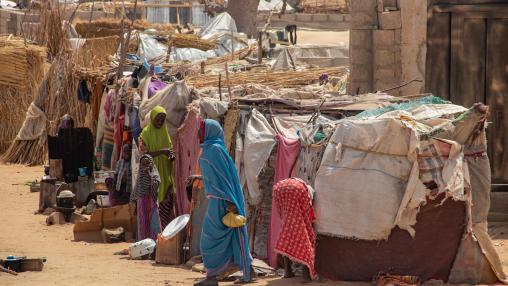
Food Crisis in Sudan: New Report Provides Policy Recommendations for Recovery
Since the outbreak of conflict in April 2023, Sudan has seen deteriorating food security and economic activity, disrupted markets and agrifood systems, and a steadily building humanitarian crisis. According to a new policy note from IFPRI’s Sudan Strategy Support Program, if steps are not taken to protect livelihoods and food security, 4 million people could fall into poverty and an additional 2 million could face food insecurity and malnourishment by 2028.
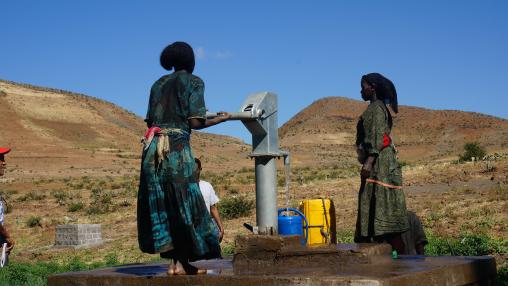
Acute Food Insecurity Remains Alarmingly High in SSA: Global Report on Food Crises Released
Despite some marginal improvements at the country level, Africa south of the Sahara remains mired in acute food insecurity and escalating food crises, according to the 2024 Global Report on Food Crisis (GRFC). Conflict, extreme weather events, economic shocks, and forced displacement continue to drive up rates of food insecurity and malnutrition throughout the region, with the outlook for 2024 equally grim.
Central and Southern Africa
Dairy and Nutrition in the Global South: Potential, Progress, and Obstacles Ahead
Malnutrition in early childhood is a major risk factor for premature death and disease, and is associated with 45% of all deaths of children under the age of 5. But malnutrition has important economic consequences too, by delaying learning and slowing down economic growth. Solving malnutrition requires multi-sectoral efforts, including more nutrition-oriented food policies. But how exactly can food policies improve nutrition?